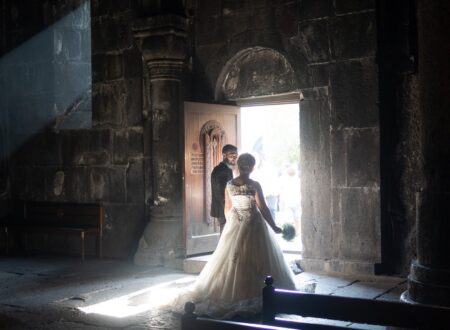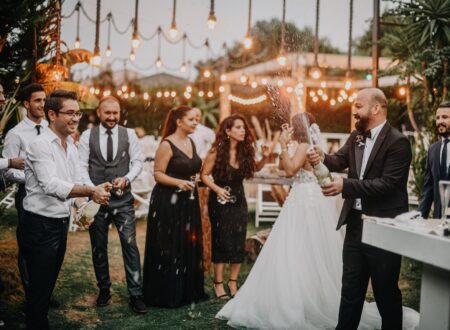Introduction: The importance of a wedding checklist
Planning a wedding can feel like navigating a labyrinth. With so many details to consider, it’s easy to become overwhelmed. That’s where a comprehensive wedding checklist comes into play. Think of it as your trusted guide through the maze of decisions and tasks that lead up to your big day.
From setting a budget to selecting the right vendors, having everything laid out makes it less daunting and more enjoyable. After all, this is one of the most memorable days of your life! So grab a pen and paper or open that notes app on your phone—let’s dive into creating the ultimate wedding checklist that ensures no detail goes unnoticed.
Setting a budget and choosing the date
Setting a budget is the first step in planning your wedding. It helps you determine what’s feasible and keeps spending in check. Start by listing all potential expenses, from venue fees to flowers and attire.
Once you’ve established a budget, it’s time to choose a date. This decision can influence nearly every aspect of your day. Consider the season you prefer; spring brings blooms while autumn offers stunning foliage.
Think about holidays or special dates that might hold meaning for you as a couple. However, be aware that popular dates can lead to higher costs due to demand.
Flexibility is key when selecting your date. If you’re open to off-peak seasons or weekdays, you might find better deals on venues and vendors. Remember, this day should reflect your love without breaking the bank.
Finding the perfect venue
Finding the perfect venue can set the tone for your entire wedding. It’s essential to consider your style and theme first. Do you envision a rustic barn, an elegant ballroom, or perhaps an outdoor garden?
Location is crucial too. Think about convenience for guests and accessibility. A central spot might make it easier for everyone to attend.
Don’t forget capacity. Make sure it accommodates your guest list comfortably without feeling cramped.
Visit potential venues in person if possible. This helps you visualize decorations and seating arrangements better than photos alone.
Ask about amenities like parking, restrooms, and setup times as these details matter on the big day.
Trust your instincts when making this choice. The right venue should feel welcoming and resonate with you both as a couple.
Invitations and guest list
Creating the guest list is often a delicate balancing act. Start by jotting down everyone you want to invite, from close family members to distant friends. This can be an emotional process, as it’s essential to consider who truly matters on this big day.
Once you have your initial list, think about your venue capacity and budget constraints. You may need to make tough decisions about who gets an invite and who doesn’t. Keep in mind that it’s not just about numbers; it’s also about ensuring that your celebration feels intimate and personal.
When it comes to invitations, choose designs that reflect your wedding theme and style. Whether opting for traditional paper or digital invites, ensure all details are clear: date, time, location, dress code—everything guests need to know should be included.
Don’t forget to include RSVP instructions! This will help you manage the final headcount smoothly as the day approaches.
Choosing vendors (caterer, photographer, etc.)
Selecting the right vendors can make or break your wedding day. Each professional you hire contributes to the overall experience. Start by researching caterers, photographers, and other key services.
Look for reviews online and ask friends for recommendations. Personal connections often lead to great finds. When meeting potential vendors, pay attention to their communication style; it’s crucial that you get along well.
Don’t forget to check their portfolios. For photographers, this means seeing a range of styles in their past work. Taste test menus with caterers—food quality is paramount.
Discuss availability early on since popular vendors book up quickly. Once you’ve narrowed down your choices, be upfront about your budget and expectations during negotiations.
Remember that flexibility can yield better options as many professionals are willing to tailor packages just for you. Finding those who truly understand your vision will set the tone for a memorable celebration.
Transportation arrangements
Transportation is a key element in wedding planning. It ensures that everyone arrives on time and in style. The journey to the venue should be as memorable as the event itself.
Consider your bridal party first. Will you need a shuttle for them? Limousines or classic cars can add elegance to the day, while buses might suit larger groups better. Think about how much space you’ll require and choose accordingly.
Don’t forget about your guests! If you’re hosting many out-of-town attendees, look into arranging transportation from hotels to the venue. This thoughtful touch makes their experience seamless.
Plan for post-reception travel too. Arrange rides home or hotel shuttles so guests can enjoy themselves without worrying about getting back safely after celebrating with you all night long.
Creating a timeline for the day
Creating a timeline for your wedding day is vital. It ensures everything flows smoothly and keeps stress at bay.
Start by outlining the key events, like the ceremony, reception, and speeches. Be realistic about how long each segment will take. Allow time for unexpected delays; they often happen.
Consider when hair and makeup should start. Coordinate with your bridal party to ensure everyone is ready on time.
Include moments like the first look or family photos in your schedule. These are special opportunities you won’t want to rush through.
Share this timeline with vendors and key guests. This way, everyone knows what to expect throughout the day.
A well-planned timeline can turn chaos into harmony so you can truly enjoy every moment of your celebration.
Making sure all legal documents are in order
Ensuring all legal documents are in order is a vital part of the wedding planning process. You want your day to be seamless, and that starts with checking off the necessary paperwork.
First, you’ll need to obtain your marriage license. Each state has specific requirements, so research what’s needed in your area. Don’t forget about any waiting periods or residency rules that might apply.
If either partner has been married before, divorce decrees may also be required. Collect these documents early on; the last thing you want is a last-minute scramble for paperwork.
Additionally, consider any name change forms if one of you plans to take a new surname after saying “I do.” It can streamline future processes like updating IDs and bank accounts.
Taking care of these details ahead of time gives you peace of mind as your big day approaches. Don’t overlook this crucial step—it sets the foundation for everything else that follows.
Finalizing details and confirming with vendors
As the big day approaches, it’s time to tie up all the loose ends. Start by reviewing your checklist one last time. Make sure every detail is accounted for.
Reach out to each vendor a few weeks before the wedding. Confirm their availability and services. This includes your caterer, photographer, florist, and anyone else involved in making your day special.
Double-check that they have your correct date and venue information. It’s easy for details to get lost in communication, so clear any doubts now rather than later.
Consider creating a master contact list with names and phone numbers of all vendors. This will be handy on the wedding day when you may need to reach someone quickly.
Don’t forget about final payments or tips for your vendors too! Arrange these ahead of time so you can focus on celebrating rather than scrambling at the last minute.
With everything finalized and confirmed, take a moment to breathe deeply. You’re ready to enjoy this beautiful journey into marriage surrounded by loved ones who share in your joy!





